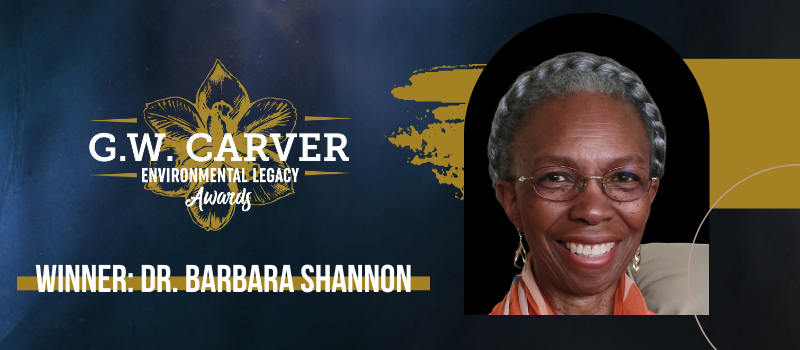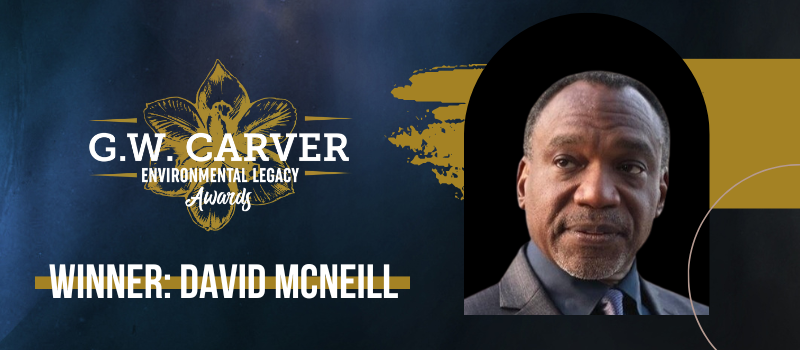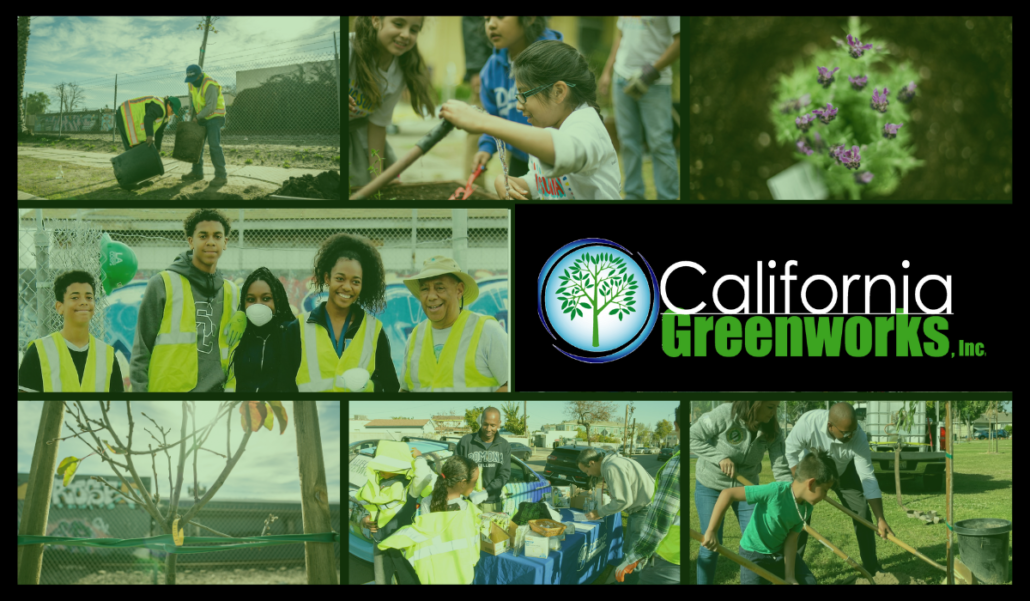2023 CELA Award Winner: Dr. Barbara Shannon

Our George W. Carver Environmental Legacy Awards (CELA) is coming up in April to celebrate Earth Day and the accomplishments of members in our community who have made extraordinary contributions within the environmental movement.
We will honor four awardees during the April 20 event at the California Science Center. Today, we’d like to introduce you to Dr. Barbara Shannon, Director of STEM Education Emeritus
We recognize Dr. Shannon for her outstanding work in the environmental field, most specifically her work as the Director of STEM Education at Synergy Academies, and her essential role in empowering more Latino and African American students to pursue a career in the STEM field. Her work lifts those in the same underserved communities we support out of the circle of poverty, allowing them to accelerate their lives to successful careers. STEM careers will play a vital role in future environmental protections, and we are grateful for her impact in this area.
Here’s more from our interview with Dr. Shannon:
Dr. Barbara grew up on a farm in Fontana, where the city limited access to water to certain times of day depending on your location north or south of Baseline Street. Her dad purchased a water tank which he filled every night, and shut off the fill valve in the morning. The family farm was home to chickens, rabbits, goats, cows, and pigs – and, as she put it: “We learned not to waste water, or someone, including the animals, would have to go without.”
Conservation is always seemingly an underlying thread of her life. In the 1970s, she started her teaching career – well aware of the active research California put into alternative energy sources such as nuclear, wind, geothermal and solar. This in combination with her childhood and influences from devastating storylines of movies like Soylent Green and Planet of the Apes encouraged Dr. Shannon to always think earth conscious – and to pass that attention on to her students.
In the 1980s, she wrote a course entitled, “The Physical Ecology of Southern California,” which combined chemistry, biology, geology and ecology and took students on field trips to places such as San Onofre Nuclear plant, the Solar Field – Solar One, and the San Gorgonio Wind Farm.
She spent 8 years as the Director of STEM Education for Synergy Academies, which consists of three public charter schools located in South Los Angeles. The program includes a very active Environmental Science program that has evolved over the years, often incorporating research and understanding of the South LA Wetlands.
“I have taught conservation at every place I have worked and tried to instill in the younger generation the necessity of taking care of the earth – air, water, plants, and animals,” Dr. Shannon said. “When I lived in Eureka, I watched as cancer rates climbed in areas affected by the paper mill pollution. When they built Costco, the soil was so contaminated they had to burn off the soil to clean it up. In South Los Angeles, I noticed an increase in cancer in families whose dwellings were built on land where car painting facilities once were. And now, with the drought, clean water is becoming scarce. Conservation is more important than ever.”
Even when programs had to pause during COVID, Dr. Shannon says the school found resources that “helped the students truly understand our impact on the environment and what we could do to reduce our carbon footprint and still enjoy life.” They hope to end this school year with a field trip to the San Diego Wild Animal Park, where students will see how the park uses conservation methods to help animal and plant species.
“One fault of humans is that we invent but don’t look at what our inventions can cause. In California, all new appliances are to be electric by 2026,” she said. “But energy is needed to make that electricity. Where will we get it? So, I think we need to look ahead when we come up with an idea to see who will be affected and how they will be affected.”
Dr. Barbara Shannon said she continues to learn every day from everyone. Some unique details about herself: she learned to shoot a bow and arrow at the age of 7, and her favorite hobby is reading science fiction/fantasy.
Dr. Barbara Shannon is the co-founder and founding principal of two schools: the middle school, Synergy Kinetic Academy (2008), and the high school, Synergy Quantum Academy (2011). Barbara has been an educator for 50 years. She holds a B.A. in Biology from CSU San Bernardino, an M.S. in Biology from Cal Poly Pomona, and a Doctorate in Learning and Instruction with an emphasis on Science Education from the USC Rossier School of Education. Before opening Synergy Kinetic Academy, she spent her summers doing research at the Lawrence Berkeley Laboratory and the City of Hope.
We are truly humbled by the work that Dr. Shannon has done to influence young minds about the importance of conservation, and look forward to presenting her with this much deserved award on April 20.
More About CELA
Dr. George Washington Carver, an African American scientist, naturalist, visionary and environmentalist saw it fitting to pursue a life of uplifting his community through the use of ecology and science. His vision lives with us today. The GW Carver Environmental Legacy Awards is intended to serve as recognition for outstanding devotion and service to mankind.
Our award recognizes leaders within their prospective fields of academia, green technology/STEM, environmental justice/advocacy, entertainment and community service categories. These outstanding citizens have distinguished themselves within their prospective professions to have made a positive impact on humanity and our environment. We seek to honor their service to humanity and achievements with our award during this annual gala celebration.




